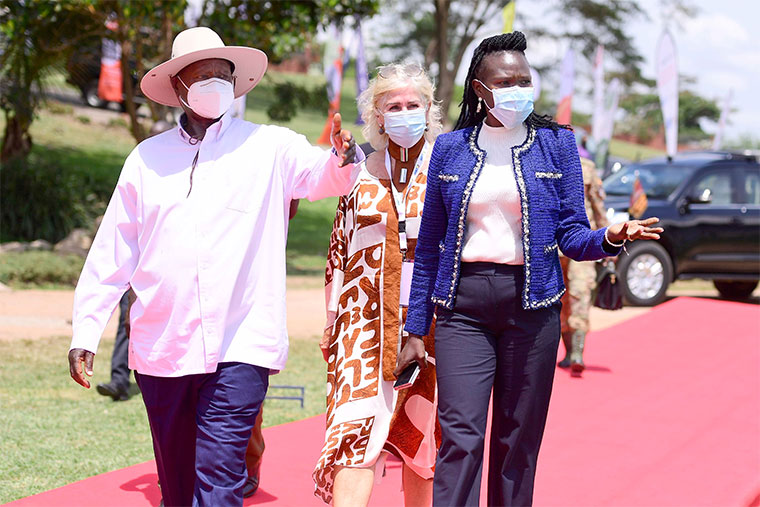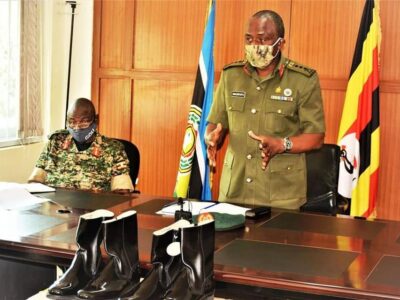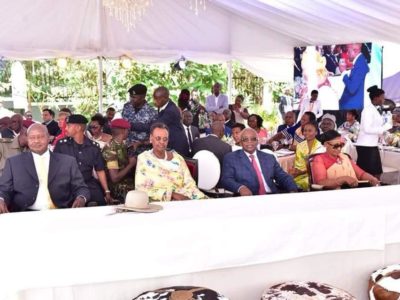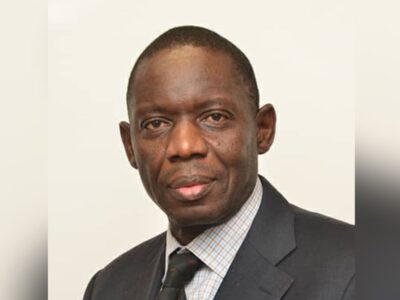President Yoweri Museveni has asked Europe to stop sending him “young girls” to lecture him on human rights and governance and instead invest in the country if indeed they want to engage in the affairs and welfare of Ugandans.
Speaking at the second Uganda-EU Business Summit in Kampala Wednesday, Museveni wondered why European investments in Uganda and Africa have remained low compared to Chinese and Indian projects, in spite of the advantages like language and other aspects shared.
“How many factories do we have in Uganda now, how many are owned by the Chinese? How many are owned by the Indians and how many are owned by the Ugandans? And how about by our relatives, the Europeans? The ones whose language I speak, I don’t speak Chinese but the Indians and the Chinese have been investing here. I hear they tell their companies that you go to Africa and if you see a profit-making enterprise, come back we shall give you the money. You go and invest, you will pay slowly. Why can’t Europe do this? Instead of doing this, they come to give me lectures I don’t know about this…about that. I look at young girls giving me lecturers, you young please! But Africans are very polite people, I always find nice words and the young girls go away but it is not in order,” said Museveni.
Museveni’s outbursts come against continued squabbles between Uganda and the European Union over the construction of the East African Crude Oil Pipeline (EACOP) which the EU wants to be halted over environmental concerns. Museveni further said as the population of Africa overtakes that of India and soon that of China, it is the best time for Europe to think of investing in the continent.
“Really for the European companies and governments and political groups and the think tanks if there are, this is the moment. Africa is easy for you, we share a lot in common; language, legal system, some of the concepts of social organisation. It should really be so much easier for you to work with us than…When I meet the Chinese delegations, I need to listen carefully because they don’t speak English well, it is quite something but we do very good business. So why not the Europeans?” added Museveni.
Currently, Uganda exports goods to Europe under the Everything But Arms (EBA) arrangement which is a duty-free and quota-free initiative for Uganda and other low-developed countries. Kenya was removed from the list of beneficiaries after it attained middle-income status.
With Uganda nearing that threshold, it would not benefit from EBA forever, hence the need for a new agreement. However, East African countries have failed to agree on the deal, especially after Tanzania made it clear that it would not sign up because European countries would flood the market with their more superior products at the expense of the local industry.
Now, the EU and EAC have been mooting the idea of allowing willing countries to sign up on the Economic Partnership Agreements individually. The EU ambassador to Uganda, Jan Sadek is now encouraging the country to move faster and take advantage of the EU market. He pledged that the EU was ready to trade with Uganda as equal partners.
Calling on European investors to invest in Uganda, Sadek said the EU is ready to take up the advantage of the business environment in Uganda by growing their investment portfolio. Sadek warned that the job-creation rate in Uganda is too low compared to the expansion of the working age group, which could have far-reaching effects on the future of the country.
The two-day Business Forum brought together Ugandan and European policymakers, public sector agencies, EU member states, embassies and consulates, private sector trade support institutions, business associations, financial and non-financial intermediaries and investors, among other participants.
This year’s theme is “Mobilizing quality investments and boosting trade between Uganda and the European Union” and is aimed to explore a renewed commitment by both public and private sector stakeholders to building stronger business ties.
Speaking online, the EU executive vice president and commissioner for commerce and trade, Valdis Dombrovskis told the meeting that the EU was ready to help Uganda access the market through various agreements.
The EU’s focus, according to him is on green and digital economy for the creation of jobs, adding that they are ready to support its investors to open up in Uganda, and make it a hub for trade in the region.












